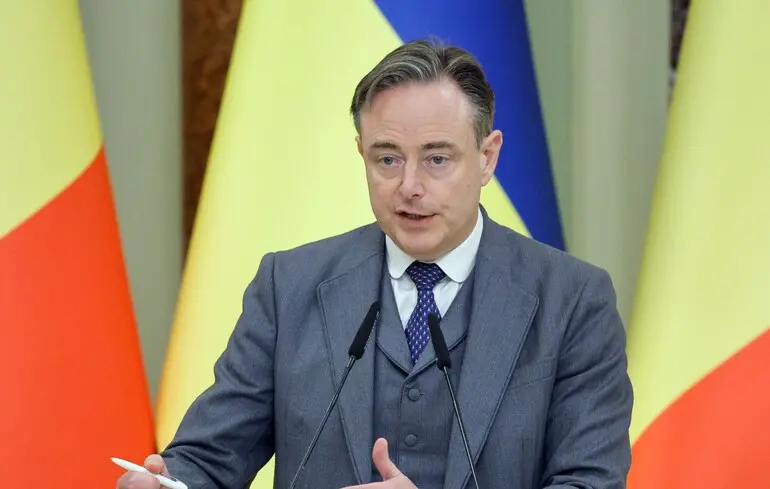Belgium opposes EU plan to utilize frozen Russian assets for Ukraine, citing legal risks

Amid ongoing international debates on providing financial support to Ukraine, Belgium explicitly stated its opposition to using frozen Russian assets for funding Ukrainian needs.
According to reports, Belgian officials emphasized that any attempt to mobilize assets held on their territory—amounting to over 185 billion euros (approximately $217 billion)—would violate international law and pose significant legal risks.Prime Minister Bart De Wever underscored that confiscating Russian assets is impossible due to legal constraints, explaining that proposals by the European Union to use interest or dividends from these funds are a risky venture requiring a complex risk-sharing mechanism among EU countries.
He also hinted that the process could be lengthy and require extensive negotiations.During a recent meeting in Copenhagen ahead of the EU Political Community summit, De Wever highlighted that each member state must provide guarantees to mitigate potential legal repercussions and failures of the initiative.
He stressed that any actions must be taken carefully, respecting legal frameworks and national security.Meanwhile, more optimistic assessments emerged within European political circles.
EU Commission representatives and leaders claimed that the initiative to leverage frozen Russian assets for Ukraine’s funding is gathering momentum, and concerns about legal risks will be addressed appropriately.
The European Commission recently proposed a mechanism allowing investment of the frozen funds with conditional guarantees, aiming to utilize approximately 140 billion euros in credit while ensuring return options.Ursula von der Leyen indicated that access to this credit could be provided in tranches with specific conditions.
However, Belgium and other countries expressed concerns regarding potential legal challenges, including possible lawsuits from Russia and issues within the legal framework.
The EU foresees that the issue of reparations, which involves transforming frozen assets into aid for Ukraine, will require further detailed discussions in the upcoming weeks.

